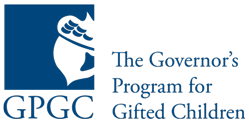Here are the reports from the Composition teachers for Weeks One and Two.
Freshmen Composition (Mrs. Cecil Tate, Instructor)
Week One:
The students wrote letters introducing themselves to me. They were free to tell me whatever they thought was important and interesting about themselves. The letters were great and very creative. They also made a list of their favorite books and wrote reviews for their top three. Each day the students wrote a journal entry which provided practice for a writing technique.One of the techniques the students enjoyed was the cubing exercise. They used a paper clip to practice the six ways of writing about a subject or object. They really liked arguing for or against paper clips – or maybe they just enjoyed arguing!
Week Two:
This week the goal was to have the students use various sources as inspiration for compositions The class used their journals as a brainstorming source in order to develop a personal narrative. They read a translation of Plato’s “ Death of Socrates” and short biography about the life of Socrates which they used to write a short description of his trial. Next, they practiced varying their sentence structure by imitating examples of sentences by various famous authors.
Sophomore Composition (Ms. Talisha Shelly, Instructor)
Week One:
In week one, a combination of lecture/discussion/workshop teaching style was employed. To start the week, we worked on familiarizing (or refamiliarizing) ourselves with the writing process, and students wrote down their goals and intentions for the class (which will be revisited during the final week of class). On Tuesday I lectured about the various components of an essay, and on Wednesday and Thursday we discussed the importance of imagination to the writing process (research, prewriting, drafting, editing, revision). Poems by Shel Silvertein were read aloud, along with a short story called “Zolaria” by Caitlin Horrocks–which featured basilisks, space dolphins and other mystical creatures–to demonstrate imaginative writing. For homework, the students wrote their own imaginative stories, and presented them in class; I pointed out the importance of reading aloud, audience awareness and the similarities between essay and story writing.
Week Two:
During week two, a combination of lecture and discussion teaching style was employed. To start the week, we read and discussed a handout (“Choosing a Topic for Your Essay”); for homework, students were assigned to come up with their own topics for the first essay assignment (Descriptive Essay), based on their personal interests and the world around them. On Monday, students were provided with guidelines for writing the essay. Poems by Shel Silverstein, Robert Hayden and Joy Harjo were also read to demonstrate the components of good descriptive writing.On Tuesday, students worked on prewriting and drafting in class; students were to finish writing rough drafts for homework. On Wednesday, I lectured briefly about common errors in essay writing (word choice, point of view, tone/audience awareness, etc.), then students conducted peer reviews in pairs and worked on corrections. For homework, students completed final drafts of their Descriptive Essays. On Thursday, we read an article (“How Modern Life Depletes Our Gut Microbes”) and began discussing the next essay assignment (Comparative Essay). For homework, students were asked to brainstorm topics for the Comparative Essay assignment.
Senior Composition (Ms. Kristina McBride, Instructor)
Week One:
The first week of the summer, the class picked up from where they left off at the end of last summer. After taking time in the first two days of class to reacquaint ourselves and decide on focus for senior projects, we discussed the poetry presentations that will be due near the end of the summer. Each student will choose a style, form, or movement of poetry to research and teach. The class then spent time reviewing paragraph and essay structure before working on the first writing assignment, a persuasive essay speaking from the perspective of a holiday’s mascot persuading another holiday’s mascot of their superiority. On Thursday the class debated on which of the class chosen holidays is more important or significant. Friday will be spent working on some in class writing as a way to distinguish between favorite and best through the righting of movie reviews.
Week Two:
On Monday the class discussed the movie reviews they wrote on Friday, and we created a criteria for a universally good movie. After that discussion we applied that idea to what a good essay should look like, creating a rubric for their persuasive essay they had written and brought to class. After the discussion, the class switched essays and completed peer reviews, focusing on constructive criticism. Monday night’s homework was to read a short essay by Ray Bradbury titled “Just this Side of Byzantium” that was included in his introduction to his novel Dandelion Wine. On Tuesday we discussed Bradbury’s essay and his method for writing. We also discussed how despite how little life experience one may have, everyone has a story to tell that is both universal and personal. We then read a chapter of Anne Lamott’s book Bird by Bird titled “Short Assignments.” We looked at ways to tackle writing and life challenges by taking them on a little piece at a time, or “bird by bird.” We talked about Lamott’s idea of using a one inch picture frame as a reminder that you only need to focus on a small section of an idea at a time in order to complete a project, whether it be a writing assignment or a life goal. On Wednesday the class created their own one inch picture frames and decorated them. Thursday was spent beginning reading “The Thing in the Forest” by A. S. Byatt. On Friday the class used their one inch picture frames to look at the world around them to write a story that would fit within the one inch frame.
Comments

